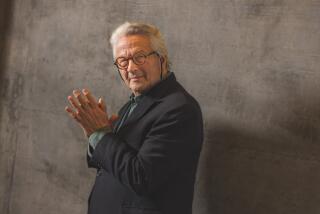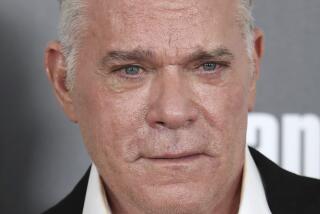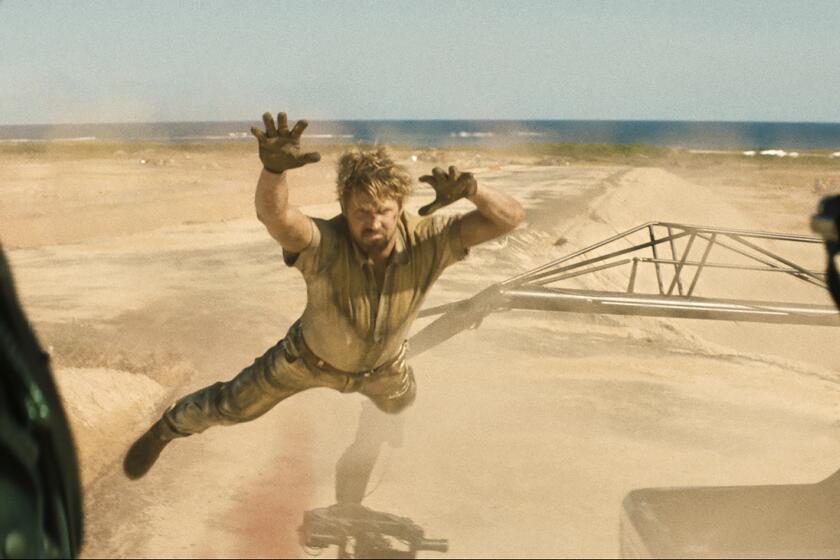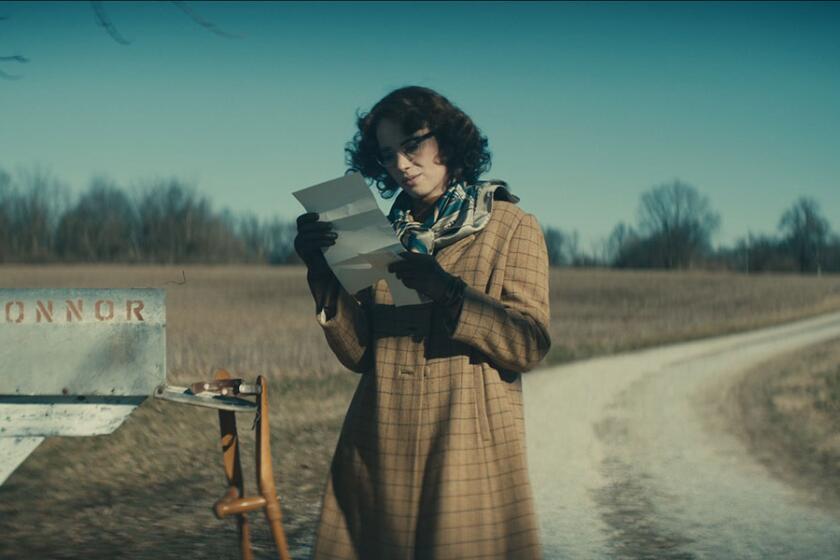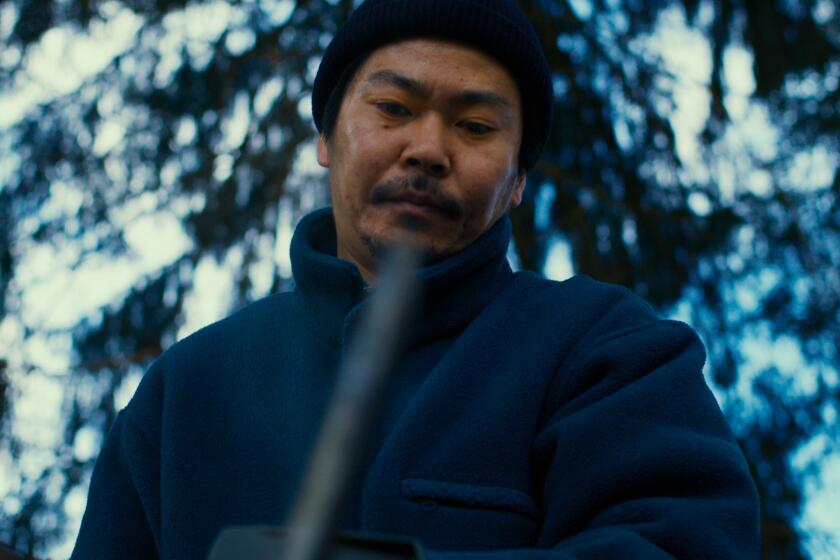Those With a Nose for News Look Up to Hildy Johnson
Will Mir of Woodland Hills notes that I have sometimes written nostalgically about my days as a young reporter, noting that I was inspired to choose this profession by Pat O’Brien’s performance as Hildy Johnson in “The Front Page.”
“Somehow, as you are today,” he says, “it’s hard to visualize you as the type of reporter usually depicted in the movies. There were variations on the character, but he was played to perfection by Lee Tracy. In the movies, the reporter was always loud, fast-talking, pushy, wore a loose tie and had a press card in the band of his battered fedora. Oh, and don’t forget the dangling cigarette. It’s not likely that any of Hildy or Hildegard’s press mates could have evolved into our Jack.”
Hildegard, of course, was Hildy Johnson as a woman, with Rosalind Russell playing the role in “His Girl Friday.” (Cary Grant played Walter Burns, the demanding managing editor played by Adolphe Menjou in “The Front Page.”)
“The Front Page” came out in 1931, my last year of junior high school, and I have never doubted that it moved me directly into journalism. Hildy, you may remember, is a dedicated Chicago reporter to whom a news beat (or scoop) is the Holy Grail.
He has plans to be married and to quit the newspaper business for advertising, but a condemned murderer escapes the county jail, and Hildy finds him hiding in a roll-top desk while his colleagues are absent from the courthouse pressroom. He leaves his fiancee and her mother waiting at the station.
If Mir wonders whether I would have left my fiancee and her mother waiting at the station while I pursued a scoop, I probably would have. First things first.
I was never loud, fast-talking or pushy, my tie was never loose and I didn’t wear a hat, but I smoked and drank too much, and I once talked a mother out of a picture of a daughter who had just been raped. Come to think of it, I did talk rather fast.
Lee Tracy, by the way, played Hildy Johnson in the Broadway version of “The Front Page,” and I have no doubt that he talked fast, wore his tie loose, wore a misshapen fedora, and had a dangling cigarette in his mouth. Those were the trademarks of Tracy when he later played reporters in the movies, of which I saw several.
It is curious that I was not repulsed by these disreputable characters. I regarded them as role models. Oddly, I think I was more impressed by Rosalind Russell as Hildegard in the 1940 “His Girl Friday” than by Hildy in “The Front Page.” She was smarter than Hildy and talked faster. And she had more style.
The critic Pauline Kael summarized: “Overlapping dialogue carries the movie along at breakneck speed; word gags take the place of the sight gags of silent comedy, as this vanished race of brittle, cynical, childish people rush around on corrupt errands. . . . “
We are not exactly a vanished race. We have simply changed by evolutionary processes. We may have been cynical, perhaps even childish, but not brittle. We were tough and resilient. Our errands may have been sordid, but rarely corrupt.
A few of us may have taken money to withhold news or distort a story in someone’s favor, but I never heard of it; we were not as corrupt as politicians. The only money I ever took was given me by Mae West. I had been interviewing Mae, with a photographer, in her suite at the Ravenswood. Before we left she excused herself and came back with two sealed envelopes. When we got to the elevator we opened them. Each contained a $20 bill.
I said, “I’m not going to embarrass her by giving this back.” My photographer said, “Me either.” I excused myself with the realization that no bribe could have made me adore Mae more.
As I say, my tie was not loose. I have always been a rather neat, if not a snappy, dresser. There were some fashion plates among us, like Tom Tower. Someone once said of the New York reporter Heywood Broun that he always looked “like an unmade bed.” Most of us did. It was hard to be properly dressed for a job that might require you to interview a statesmen in the morning and cover a forest fire in the afternoon.
I remember that the fabulous city editor Agness Underwood assigned me one day to go out to the Ambassador Hotel to interview Kirsten Flagstad, the great Norwegian soprano. I said, “Aggie, I can’t interview Kirsten Flagstad looking like this.” I was wearing my Marine green trousers and a red woolen lumber jacket. She said, “You look fine.”
That’s the era I fledged my wings in, and I can’t deny it.
More to Read
Only good movies
Get the Indie Focus newsletter, Mark Olsen's weekly guide to the world of cinema.
You may occasionally receive promotional content from the Los Angeles Times.

